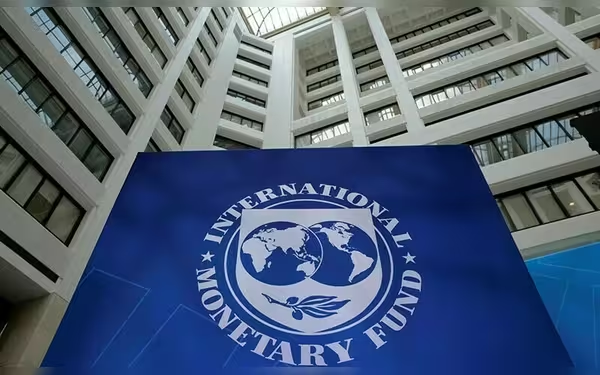Saturday, November 16, 2024 06:36 PM
IMF Urges Pakistan to Implement Reforms and Expand Tax Base
- IMF stresses sustained program implementation for economic stability.
- Widening tax base essential for reducing external borrowing.
- Collaboration with partners critical for financial support.
 Image Credits: dawn.com
Image Credits: dawn.comIMF emphasizes the need for Pakistan to implement reforms and widen its tax base for sustainable economic growth and stability.
The International Monetary Fund (IMF) has recently concluded its consultations with Pakistan, leading to the approval of a crucial bailout package. This development comes at a time when Pakistan is grappling with significant economic challenges, including a widening fiscal deficit and a pressing need for financial stability. The IMF's involvement is seen as a vital step towards restoring confidence in the country's economy and ensuring sustainable growth.
In a statement released after the consultations, the IMF executive directors highlighted the importance of "sustained program implementation." This means that Pakistan must not only adopt the necessary reforms but also ensure that these reforms are effectively put into practice. The directors emphasized that this implementation should be supported by capacity development and close collaboration with development partners. Such partnerships are essential for mobilizing additional financing, which is crucial for restoring market access.
The IMF also pointed out that continued strong financial support from Pakistan's development and bilateral partners will be critical for the program to achieve its objectives. This indicates that while the IMF's support is significant, it is not a standalone solution. Pakistan will need to engage with other countries and organizations to secure the necessary funds and resources to stabilize its economy.
As Pakistan navigates through these economic waters, it is essential for the government to focus on widening the tax base. A broader tax base can help increase revenue, reduce reliance on external borrowing, and ultimately lead to a more resilient economy. This approach not only addresses immediate financial needs but also lays the groundwork for long-term economic health.
The IMF's emphasis on sustained program implementation and collaboration with development partners underscores the importance of a comprehensive approach to economic recovery. For Pakistan, this is not just about securing a bailout; it is about building a sustainable economic future. By focusing on reforms, engaging with partners, and widening the tax base, Pakistan can work towards achieving its economic goals and restoring confidence among its citizens and investors alike.













